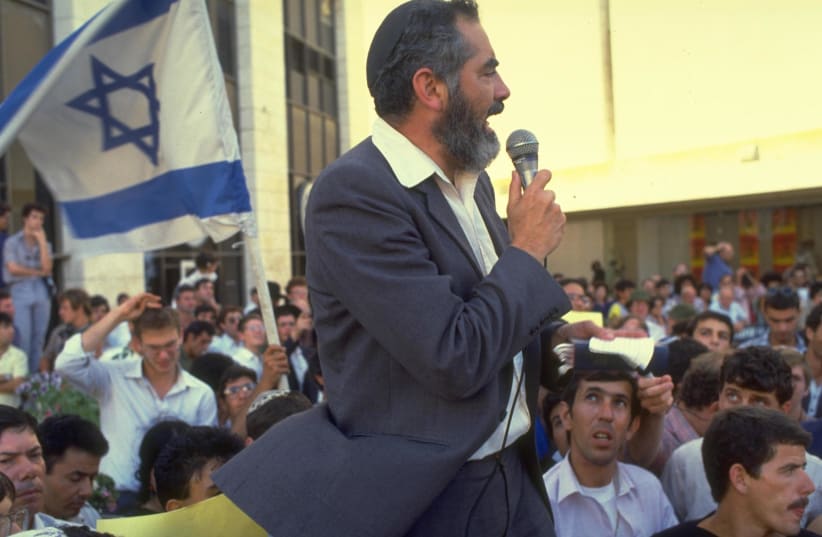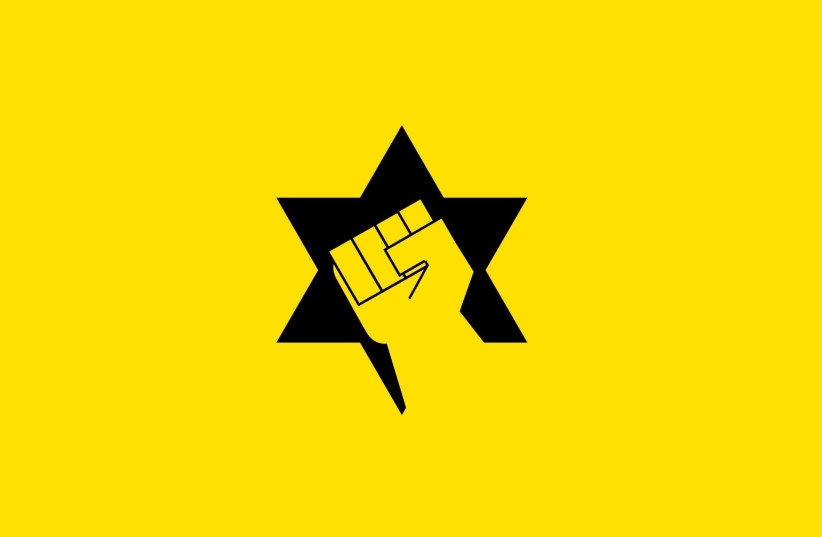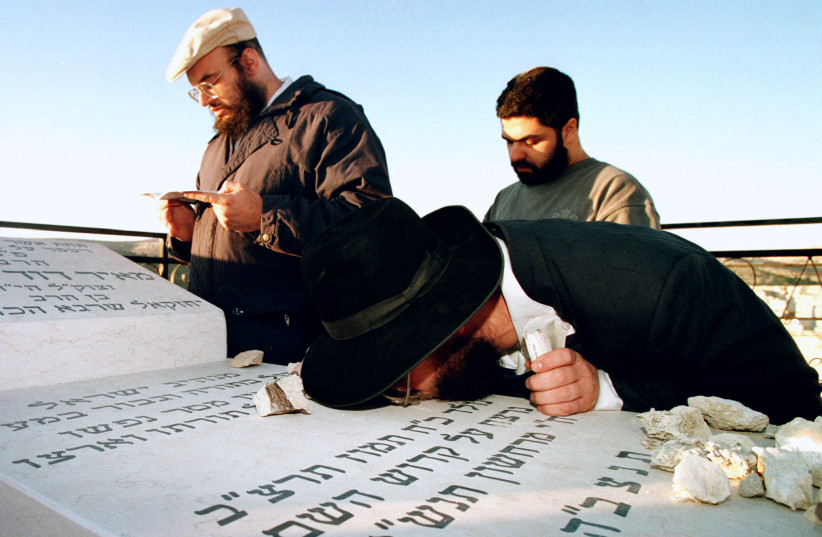November 5, 2021 marks 31 years since far-right Israeli politician Rabbi Meir Kahane was assassinated in a New York City hotel in what some have considered the first act of Islamic terrorism on US soil.
Born in New York before making aliyah, Kahane was an extremely controversial figure, and remains so to this day. He had helped found the Jewish Defense League in 1968 to protect Jews against antisemitism, and later founded the Kach Party in Israel.
His far-right views were very pronounced, having advocated for annexing the West Bank, restricting democracy in Israel to just Jews, endorsing mass aliyah, making Halacha Israel's state law, segregating Jewish and Arab neighborhoods, banning sexual relationships between Jews and gentiles and supporting violence against enemies of Jews, among many others.
Kahane faced criminal charges both in the US and Israel for his actions and views, having been convicted in New York for a conspiracy to create explosives and in Israel of plotting to blow up the Libyan Embassy in Belgium. In fact, in Israel, he was arrested over 60 times, and during one of these periods of imprisonment he wrote his book They Must Go.
But he kept up his efforts and activism. In 1984, Kahane's Kach Party had managed to win a single seat in the Knesset elections, making Kahane an MK. This was despite the efforts of the Central Elections Commission, who had tried to bar him from running, though Israel's High Court of Justice overturned this effort.
However, Kahane's tenure was fraught with controversy as both the Right and Left boycotted him, and news outlets run by the Israel Broadcasting Authority had refused to cover anything he did in the Knesset, as his views are "contrary to the spirit of the Broadcasting Law." This was overturned in another court ruling by the High Court of Justice, with High Court president Aharon Barak ruling that though Kahane's views were frightening, he nonetheless had the right to express them, and the Israel Broadcasting Authority did not have the right to censor him to such an extent.
In 1988, during the First Intifada, Kahane's popularity grew even further. However, the Knesset was able to bar him from running in the next elections, having made it illegal for "racist" and "undemocratic" political parties to run, making Kahane the first person to ever be barred for running for office in Israel due to racism.
After this, Kahane continued traveling to the United States and gave speeches. However, it all came to an end on November 5, 1990, when during a speech given in New York City, an Egyptian-American named El Sayyid Nosair, disguised as an Orthodox Jew, shot and killed him.
Nosair was promptly arrested. However, the court acquitted him of murder, though it did find him guilty of assault and possessing an illegal firearm. The acquittal was shocking, as the jury's decision went against the beliefs of the judge. This act of jury nullification went "against the overwhelming weight of evidence and was devoid of common sense and logic," and prompted him to sentence Nosair to the maximum sentenced allowed: Seven and one-third to 22 years in prison.
Originally, many considered the assassination of Kahane to be antisemitic in nature. However, this view later changed.
Nosair was later convicted of involvement in a terrorist conspiracy and further assassination plots, and was given a life sentence. This conviction, in relation to the trial of Omar Abdel-Rahman for the 1993 World Trade Center Bombing, had found that a "seditious conspiracy" was underway, and Kahane's assassination had been part of it. This, in turn, has led many to consider the assassination not an antisemitic hate crime, but Islamic terrorism on US soil.
Kahane was buried on the Har Menuchot cemetery in Jerusalem. His party never ran again, and was labeled a terrorist organization in both the US and Israel, a fate that would also happen to the Kahane-Chai Party founded by his son, Binyamin Ze'ev Kahane.
However, his legacy, and that of his ideology Kahanism, remains strong to this day, and many argue that some of his views entered the Jewish mainstream.
Kahane always had many supporters, many of whom are extremely controversial figures such as Baruch Goldstein, who murdered 29 Palestinian worshippers in Hebron in what became known as the Cave of the Patriarchs Massacre.
His followers also formed other organizations and parties carrying on his views, such as Lehava, a group that fights intermarriage between Jews and Arabs and has been associated with many criminal events, causing for a push for them to be labeled a terrorist organization.
Others formed political parties, most famously Otzma Yehudit. Some of these parties saw success in elections and made it into Knesset.
Currently, the Religious Zionist Party, a union of the far-right Noam, National Union and Otzma Yehudit parties, takes up seven seats in the Knesset, sitting in the opposition. One of these MKs, Otzma Yehudit leader Itamar Ben-Gvir, who is also an attorney defending many right-wing extremists, remains a prominent Kahanist to this day.


